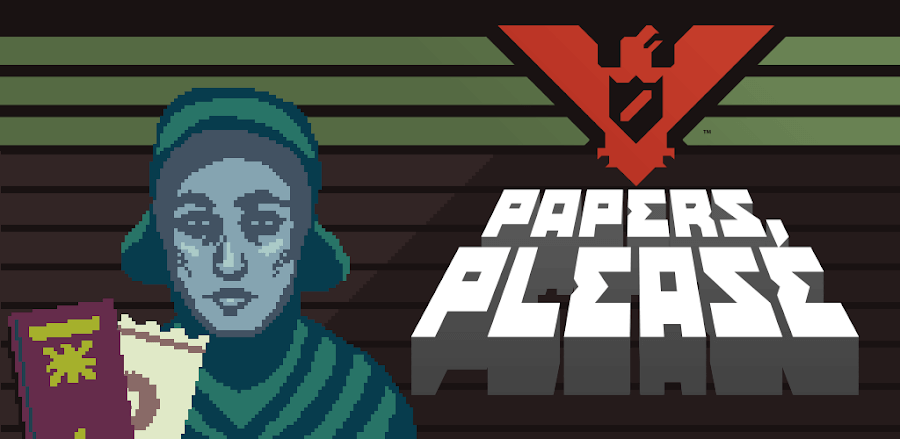In 2013, the indie game developer Lucas Pope had launched “Papers, Please”. At first, the game seemed to be very simple as it revolved around the main character performing the task of stamping passports but what lives underneath can be profoundly political, moral, and reflect the harshness of living under a repressive regime. This interactive puzzle game brings you to the heart of the matter of immigration control in a fictional world, creatind a storyline that can be both gripping and disturbing.
INTRODUCTION TO ARSTOTZKA’S BORDER CONTROL
“Papers, Please” puts you into an immigration officer uniform at the border of Arstotzka, a totalitarian country where every day comes with updated laws or rules and every day is a new challenge to overcome. The game stands out perfectly for its way of breaking the boring, tedious duty of scrutinizing the papers into a thrilling, nerve-racking pursuit. Players are required to carefully look through passports, visas and other entry permits, which are of paramount importance to the people who have already experienced a long journey and might face the difficulties of being foreigners.
GAMEPLAY MECHANICS AND STRATEGY
The basis of “Papers, Please”, is with the document checking process where you are asked to find inadequacies in the documents materialized by the immigrants and then you are required to make a decision about them – admit, deny or detain. The next day the conditions for checking the entries were changing, the new tools and approaches to check the issued information were introduced. Additionally, gamers must decide what is morally right and wrong dictating the direction they will take, whether for their own benefit or to help those who need their assistance.
THE MORAL COMPASS AND DECISION-MAKING
With “Papers, Please” the player is not merely following given orders, but experience how ethics affect their own decisions. Are you willing to do that just because you want to follow the letter of the law? It is a question of moral ethics and human conscience that we can live with or without. Is young and vulnerable Moses going to put your family in a difficult situation just to help a desperate fugitive? To the relatives of the disappeared, these choices are the most excruciating to make and often end up with the worst possible outcome. The game quite well brings out the interrelation of the corporate power and personal decisions.
ART DESIGN AND MOODY ATMOSPHERE
The design of visual and audio in the game “Papers, Please” only sharpen up the oppressive feeling. With such a dystopian society represented in the game, it is only suitable that for the background graphics they use a pixel-art style, combined with a somber color palette, that provides the same visual display as the bleakness of Arstotzka. With the simplified sound design, wherein the sole sounds of stamps’ clunks and some faint voices of immigrants who are trying to make their journey are presented, the ambience of the game is created, which absorbs players deeper into the reality of the game.
CRITICAL REACTION AND CULTURE IMPACT
Since the launch of “Papers, Please,” it has gone ahead and received a content rich acclaim. This is as a result of gameplay and its narrative nature. It has made people debate about what is work, about the authority and about the obligation. The title has seen many a trophy and accolade, earning the BaFTA for Best Strategy Game, and afterwards employed in setting up situations for students to discuss ethics and the policies on human right.
LEGACY AND ONGOING RELEVANCE
The astounding endurance of “Papers, Please” lies in its staying power; in the light of the ever-changing global immigration and government control issues. The game does not simply give players the task os how to play it but to raise concern about the bigger social and moral issues it provoked. Indeed, the ability of this game to evoke empathy from people even beyond the game’s release widens the arguments that video games can be lively and deeply influential.
FINAL WORDS
“Papers, Please” is not just a game; it is the thought experiment covered by the disguise of a “border control simulation.” It makes you go through a labyrinth of moral and ethical issues, while still anticipating the fact that at the end of the day there would be the ordinary and uninteresting stamping of passports and filing paperwork. Through his art of making the normal look miraculous, Lucas Pope presents a thought-provoking look at the complexity of human nature which is often hard to find in the balance between responsibilities and friendship. As “Papers, Please” continues to be discovered by new audiences, its message remains clear: the meaning of selection is a prerogative and a burden at the same time in the place Arstotzka.





Leave a Comment
You must be logged in to post a comment.